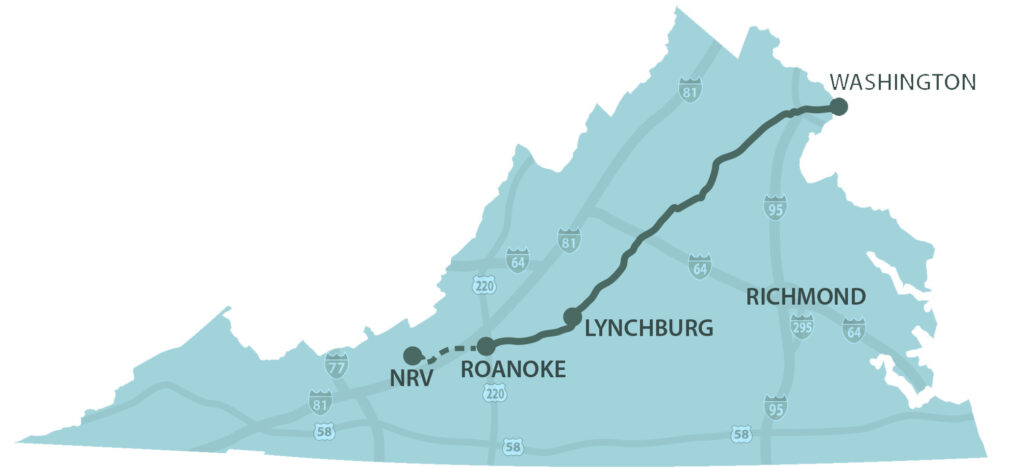2015 was a busy year for transportation planning. The Commission was engaged in several efforts at the local, regional, and statewide levels. Local projects included grant writing, contract administration, and coordinating 1-on-1 meetings with Commonwealth Transportation Board representatives. Statewide projects included supporting the Virginia Department of Transportation with education and outreach efforts for the implementation of House Bill 2, the state’s new project prioritization process. At the regional level, the Commission partnered with the region’s Metropolitan Planning Organization (NRVMPO) to lead studies for passenger rail service and public transit.
Passenger Rail
At the height of World War II through the mid-1960s, 12 passenger trains passed through Radford and Christiansburg daily. Sadly, the last remaining service terminated in 1979. As the fastest growing region in western Virginia, a service extension to the New River Valley is the next logical step towards reigniting passenger rail services in the Commonwealth. A total of six sites meet or exceed minimum requirements to accommodate what Amtrak refers to as a Caretaker Station, 1,000 foot-long platform, 200+ parking spaces, and a regional transit hub. The region could easily generate 40,000 annual trips if one out of every five I-81 northbound trips chose to ride the train.
The New River Valley Passenger Rail Study also identifies short-term and long term economic impacts associated with the engineering, construction, and operation of a new passenger rail station. One example, for every 10,000 visitors a new service attracts, approximately $1.92 million will be spent in the regional economy. The NRVMPO Policy Board plans to review the draft study in early January and recommend a potential location for a new passenger rail station in the region.
Public Transit
In October 2015, regional stakeholders met to discuss overlapping public transit service locations. Go Triangle Transit’s Director of Regional Services Development from Raleigh, NC and Virginia Tech Transportation Institute’s Eco-Transportation and Alternative Technologies were special guests at the meeting to offer their professional expertise. The group evaluated four stops where two or more transit services overlap in the region. For each location, the group shared strategies for physical improvements, schedule enhancements, branding/marketing approaches, and education. Lastly, the group discussed the role of technology in transit and successful technology intergration.
The Regional Transit Study aims to complete the final strategy identified by the NRV Regional Transit Coordinating Council established in 2010. When complete, the final product will outline potential partnerships, investments, and changes that elevate the presence of public transit. For further information please contact Elijah Sharp (esharp@nrvrc.org), 540-639-9313, ext. 210.

